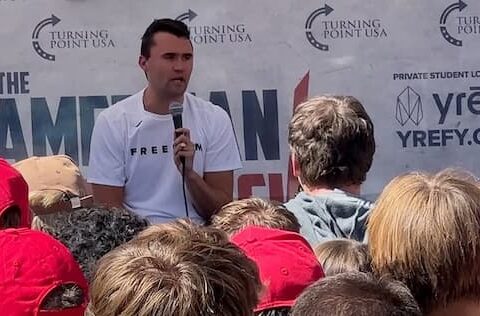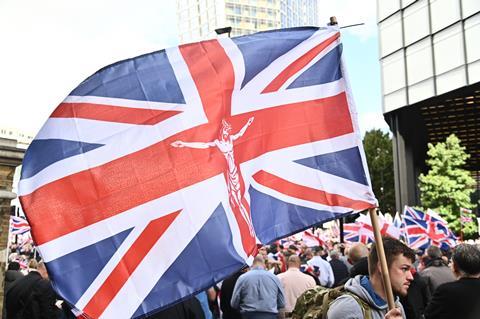The dramatic scenes in Istanbul over the weekend can almost be viewed as an illustration of the present Turkish state’s relationship with journalism in general.
But even by current Turkish government standards, the literal invasion and takeover of leading opposition newspaper, Zaman, seems pretty radical.
The government’s decision to take over management of the country’s biggest opposition publication is based on the newspaper’s alleged links to American-based cleric Fethullah Gulen, who is accused by the government of plotting to stage a coup.
This accusation may or may not have some truth to it; but both the state’s treatment of journalists in general and President Erdogan’s extreme paranoia and intolerance of criticism make it difficult for outside observers to give the benefit of the doubt.
For the record. the threat posed by Fethullah Gulen and the Gulenist movement is significant (see here): the evidence suggests that Gulen’s network is as dangerous and questionable as Erdogan’s ruling power structure is – contrary to American whitewashing of this ‘opposition’ movement.
But, for the moment, this isn’t about Gulen.
The ‘fighting terrorism’ motive is interminably cited to justify whatever the state wishes to do, whether it’s assassinating journalists or activists, conducting military assaults on Kurdish towns, violating Syrian territory, or outright taking over an opposition media organisation.
In fact, it has become apparent that we – as citizens in democratic, Western societies – should watch what is happening in Turkey very closely to see how a modern, developed state goes from democracy to dictatorship in the overt (rather than covert) sense.
We should be keeping a check-list (intimidation of journalists, monopoly on media outlets, false-flag terrorism, intimidation of academics, etc) and then keeping an eye on our own countries and governments. There are dictatorships in various places in the world, of course; but with Turkey, we’re watching an until-recently sophisticated and moderate state transforming itself before our eyes, and doing so more and more blatantly with each step.
And all under the banner of ‘fighting terrorism’ – which of course is the same mantra chanted by various governments in recent years to justify highly questionable actions.
The Turkish government’s desire to fully control all media and all information outlets is well established. Late in 2014, prosecutors had produced evidence of corruption in the government, and an audio tape was leaked in which Erdogan apparently advises his son, on the morning that the corruption scandal went public, to remove large amounts of money from their home and to hide it with family friends and associates. The President had insisted that the recording (along with other leaked tapes) are “fake”.
With pretty much all major media in Turkey now under government control, there was more or less a media blackout on the scandal, which forced Turks to turn to social media in order to find out more about the scandal. The tapes had been uploaded to You Tube and circulated on Twitter, and Turks unhappy with the government were able to openly criticise the alleged corruption. Erdogan and the government responded by shutting down access to both sites. Turkish access to Twitter was only restored because the Constitutional Court insisted on it; You Tube, however, remains officially blocked now in supposedly free and democratic Turkey.
Meanwhile academics have been targeted for speaking out against the government’s military campaign against Kurdish insurgents in the southeast, while activists are routinely attacked, hit with false-flag terrorism or outright assassinated. The shooting of prominent Kurdish lawyer and political activist Tahir Elci, dismissed by some state voices as ‘an unfortunate accident’, was almost certainly a targeted assassination.
For some time now, the current state in Turkey has sought to control information by either owning all media outlets or by intimidating or harming both opposition outlets and independent, investigative journalists.
Reporters Without Borders has labelled Turkey the ‘world’s largest prison for journalists’. In the supposedly democratic nation with EU membership aspirations, press freedom is pretty much non-existent. In an atmosphere of intimidation and fear, Turkey imprisons more journalists than any other modern nation; in spite of this tight control of information, people like Serena Shim and others have nevertheless managed to expose Turkey’s criminal role in supporting the Islamic State terror group and sustaining the War in Syria (read: ‘The Killing of Serena Shim’).
Last year, the Cumhuriyet Editor, Can Dündar, and another top editor were arrested on charges of espionage, this being just a week or so after the Turkish daily news outlet in question received a press freedom award. Predictably by now, the ‘espionage’ in question was an article exposing the arms shipments from Turkish intelligence to extremist rebels in Syria Meanwhile Ertuğrul Özkök, a reporter for Turkish daily Hüriyet, was arrested for what was deemed as slanderous criticism of Erdogan, though apparently the offending article didn’t even mention Erdogan by name.
The killing of foreign journalists isn’t off-limits for this Turkish state either. Serena Shim’s tragic death came just two days after a video interview in which she claimed Turkish intelligence agents had threatened her after her report on the ISIL extremist jihadists being smuggled into Syria from Turkey. In her own words; ‘I am a bit frightened about what they might use against me,’ she said, ‘I think that they’re trying to get the word out to journalists to be careful so much as to what they say…’
The recent suicide of British activist and former journalist Jacky Sutton in an Istanbul toilet also, in the context of Turkey’s war on journalists, gives us causes for suspicion.
But the events on Friday seem to portray the Turkish state’s attitude more openly, more blatantly.
As news of the dramatic takeover became public knowledge on Friday afternoon, supporters began gathering in front of the newspaper’s offices. In a live-stream broadcast on the website, supporters are chanting “Free press cannot be silenced.” Turkish police then used water cannon and tear gas to disperse the crowds, and then moved in to secure the premises.
The Saturday edition of the newspaper went to print before the government-backed administrators had assumed control. “The Constitution is suspended,” was the headline on the front page, in large font on a black background. “The Turkish press has experienced one of the darkest days in its history,” the paper added.
The English-language edition went with the headline “Shameful day for free press in Turkey.”
The reference to the constitution being suspended is probably very important. The Constitution of the Republic of Turkey (also known as the Constitution of 1982), is modern Turkey’s fundamental foundation stone, laying out the rules for the state’s conduct and its responsibilities to its citizens, as well as clearly establishing the rights of the people and also clearly asserting that Turkey is a secular, democratic republic answerable to the people. Fears have been growing in the country that the religiously-inclined ruling establishment is looking to change the constitution, presumably on the pretext of ‘security’ or ‘fighting terrorism’.
Altering of the constitution appears likely to be key to this current government’s agenda; and it continues to look like we are witnessing a formerly democratic, secular and progressive state sliding further towards dictatorship.





It will be interesting as you say to see where the Turkish state goes from here. If you are looking for a checklist to use you might find the book The End of America by Naomi Wolf useful as it shows how a state can be closed down and the steps it takes – comparing 20th Century events to what has been happening in 21st Century USA. Although you can easily see the same happening here in the UK and across Europe. Speaking of Europe the EU have been a bit quiet about what is going on in Turkey, considering they want to join the club.
The main reason I think is that the EU needs Turkey’s help in dealing with the refugee crisis.
I’ve heard of Naomi Wolf’s book – haven’t read it yet though. It’s worth noting that France is already subtly (ish) trying to tip-toe in that direction. It happens in careful stages.
With the UK, however, for some reason I imagine it could only be done with a very sudden, staged ‘crisis’ or event, to catch the majority of people off-guard or maybe in a state of panic.